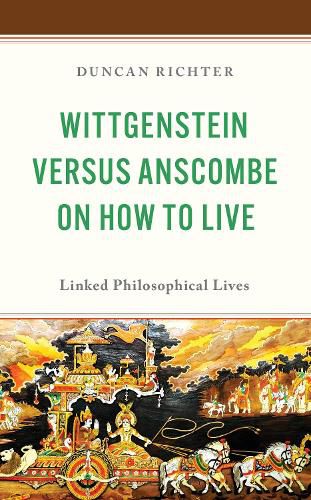Readings Newsletter
Become a Readings Member to make your shopping experience even easier.
Sign in or sign up for free!
You’re not far away from qualifying for FREE standard shipping within Australia
You’ve qualified for FREE standard shipping within Australia
The cart is loading…






Ludwig Wittgenstein (1889-1951) and Elizabeth Anscombe (1919-2001) are two of the most interesting and influential philosophers of the twentieth century, and their lives intersected in various ways. Anscombe was Wittgenstein's friend and student, chosen by him to be his translator and editor, but the two had very different views on ethics and religion. Anscombe was a devout Catholic, while Wittgenstein was much less traditional. Each cared passionately about living the right way, and each was noted for their eccentricity. Why did they live as they did? What did they have to say about how one ought to live? And what, if anything, can we learn from them? This book explores their different beliefs about killing in war, about sexuality, about politics, about God, and about the meaning of life. Drawing on previously unpublished work by Anscombe, Duncan Richter explains where these beliefs came from, how they affected the lives of these two great philosophers, and some of the strengths and weaknesses of their divergent positions. If we understand these two thinkers better, we may improve our own chances of living a good life.
$9.00 standard shipping within Australia
FREE standard shipping within Australia for orders over $100.00
Express & International shipping calculated at checkout
Ludwig Wittgenstein (1889-1951) and Elizabeth Anscombe (1919-2001) are two of the most interesting and influential philosophers of the twentieth century, and their lives intersected in various ways. Anscombe was Wittgenstein's friend and student, chosen by him to be his translator and editor, but the two had very different views on ethics and religion. Anscombe was a devout Catholic, while Wittgenstein was much less traditional. Each cared passionately about living the right way, and each was noted for their eccentricity. Why did they live as they did? What did they have to say about how one ought to live? And what, if anything, can we learn from them? This book explores their different beliefs about killing in war, about sexuality, about politics, about God, and about the meaning of life. Drawing on previously unpublished work by Anscombe, Duncan Richter explains where these beliefs came from, how they affected the lives of these two great philosophers, and some of the strengths and weaknesses of their divergent positions. If we understand these two thinkers better, we may improve our own chances of living a good life.